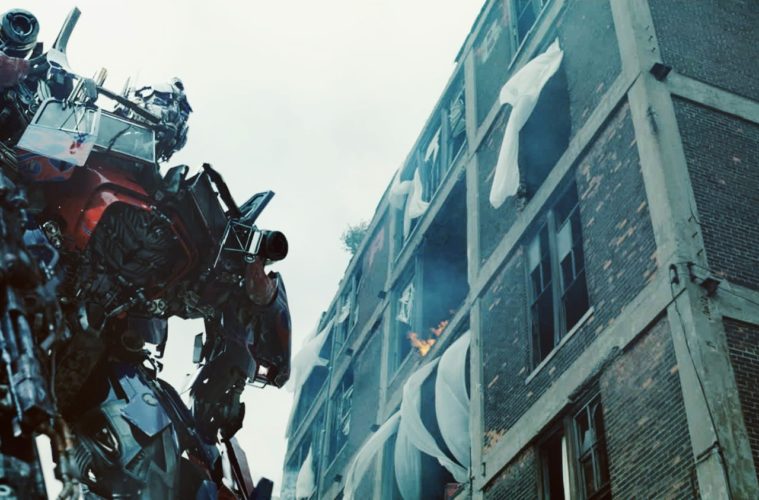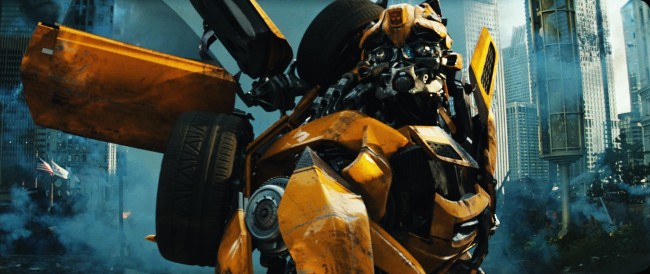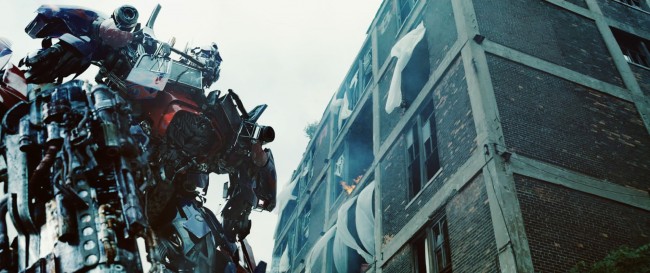
As battle wages between the Decepticons and Autobots in Transformers: Dark of the Moon is nearly as important as the one raging around the movie between critics and moviegoers over the soul of the cinema. At least, that’s what it feels like.
Ebert claims, “It provided me with one of the more unpleasant experiences I’ve had at the movies” which is shocking when you consider how polite he was about a movie where people’s mouths are sewn to a strange anuses. Michael Phillips decried it as, “a work of ineffable soullessness and persistent moral idiocy.” Our own editor Jordan Raup offers, “The Transformers franchise is a rare anomaly when it comes to setting the bar for low expectations” which is a wonderful way to enter a movie theater. Then we have Richard Corliss of Time Magazine who has seemingly lost the will to fight off the inevitable, “I acknowledge that, for good or ill, Bay is the soul of a new machine, the poet of post-human cinema, the CEO of Hollywood’s military-entertainment complex.” The world is ending, and there are no Autobot versions of cineastes to morph out of “Cahier du Cinema” and save us all from this terrible scourge.
Of all the reviews I’ve read, the most interesting is that of Peter Travers, less for his 0-star review (“Transformers: Dark of the Moon…is a movie bereft of wit, wonder, imagination, and any genuine reason for being”) than the comments just below it. Thankfully, Rolling Stone uses a Facebook-based system to put a face (sorry) on the throngs of people who will no doubt flood the theaters and really enjoy this movie. From a quick assessment, these folks seem to be young, full of piss and vigor but short on spelling and grammar, whose argument is cohesive and a bit sad. I’ll sum up for clarity’s sake: This is a mindless, stupid, action movie. It doesn’t need an Oscar-worthy plot to work. I come to shut my brain off and watch robots turn into cars, turn back into robots, and then fight each other, preferably with lots of explosions. You guys don’t know what you’re talking about and you’re awful critics because you don’t understand.”
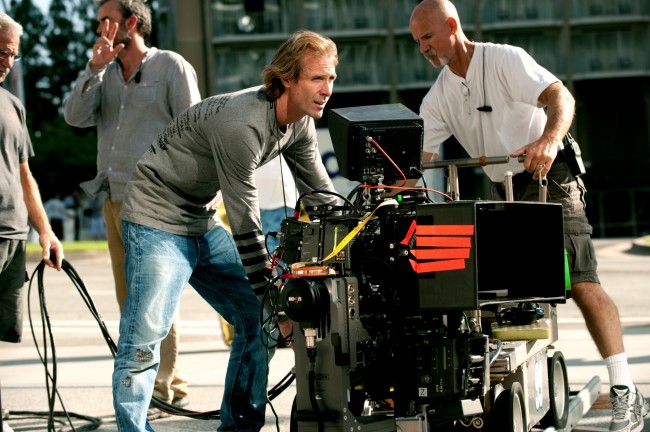 Once I stopped panicking about “what it all means,” I took a step back and realized…they were right. But in order to fully appreciate it, I had to turn to music.
Once I stopped panicking about “what it all means,” I took a step back and realized…they were right. But in order to fully appreciate it, I had to turn to music.
All pop songs are not created equal. Some have structure, emotion, and make a powerful statements about the universal truth love. Early Beatles records paid attention to the small qualities that, put together, equal a solid product, no matter the production or subject matter. For this, think of Terminator 2, Die Hard, and The Bourne Supremacy. They had great, crowd-pleasing action sequences built around solid, easy-to-follow plots with likeable characters that you root for because of the work laid down by the writer(s), director, and actors. They are the work of craftsman over the steady beat that you already know and love.
But not all pop songs are good. In fact, most are bad. Like, Ke$ha bad. They are soulless pieces of fluff that are churned through so many machines that you can’t feel the touch of a human anymore. They aren’t composed by artists but rather cobbled together by a collection of suits who know what will sell, giving the audience the absolute minimum in creativity and nothing more. It’s less about “quality” and more about “commerce,” furthering the reality that this is a business; giant, multi-national corporations trading commodities through the guise of artistic endeavors. The company puts X amount in knowing they’ll make Y back. And Y, folks, is a whole hell of a lot more than X. Transformers: Dark of the Moon isn’t the end of cinema as we know it, but another in a long line of bad pop songs created for mass-consumption.
I was a fat, awful, bitter, depressed thirteen-year-old. I loved fast-food that was designed both to taste great and slowly kill me. I loved angsty music like Limp Bizkit and KoRn, whose lyrics spoke to my alienation, anger, and frustration. Adorned in their t-shirts literally every day in middle school, the statement was that my classmates didn’t get me nearly as much as the band I represented on my chest. I perpetually felt like an inhabitant on an island set adrift from society. They couldn’t feel my unique pain, a unique snowflake that fell into a large pile of dog crap. They just couldn’t understand. And by “they,” I mean anyone who thought they knew more than me, as if “experience,” or “having lived through this exact same period in your life” was somehow supposed to MEAN something. Pfft. What’d they know?
And from this vantage point, it’s so clear why kids don’t just love this film, but that it speaks to them.
 You don’t know what you’re about. As a teenager, you’re all over the place. Every minute, your priorities, favorite bands, best friends can be changed, rearranged, and diametrically opposite to your feelings expressed minutes ago. Like Carly (Rosie Huntington-Whitely), who totally supports her boyfriend, Sam (Shia LaBeouf). She seems like the perfect girlfriend: letting him stay in her large loft apartment that seems to be just the size for a large shape-shifting robot to fit into, rent free, as he tries to assert himself. She knows that Sam feels unimportant, especially as a hero TWICE over. Which is why it’s curious when, faced with going to a dinner party or working with a US government cover-ops program to save a world might be in peril, she gets incredibly mad at him for not choosing the dinner party. After she’s taken hostage and brought to a suite in the Trump Tower in Chicago and is waited on by an extremely dedicated group of impossibly attractive housekeepers, she flees with Sam and never leaves his side. Not even when she should run for safety, or hide out somewhere, or when she talks to big, evil robots that she had never met before but suddenly not only knows what his name is, she knows that pride is his general weakness. On a dime she could be whatever she wants, regardless of how she previously felt or existed. That’s certainly relate-able.
You don’t know what you’re about. As a teenager, you’re all over the place. Every minute, your priorities, favorite bands, best friends can be changed, rearranged, and diametrically opposite to your feelings expressed minutes ago. Like Carly (Rosie Huntington-Whitely), who totally supports her boyfriend, Sam (Shia LaBeouf). She seems like the perfect girlfriend: letting him stay in her large loft apartment that seems to be just the size for a large shape-shifting robot to fit into, rent free, as he tries to assert himself. She knows that Sam feels unimportant, especially as a hero TWICE over. Which is why it’s curious when, faced with going to a dinner party or working with a US government cover-ops program to save a world might be in peril, she gets incredibly mad at him for not choosing the dinner party. After she’s taken hostage and brought to a suite in the Trump Tower in Chicago and is waited on by an extremely dedicated group of impossibly attractive housekeepers, she flees with Sam and never leaves his side. Not even when she should run for safety, or hide out somewhere, or when she talks to big, evil robots that she had never met before but suddenly not only knows what his name is, she knows that pride is his general weakness. On a dime she could be whatever she wants, regardless of how she previously felt or existed. That’s certainly relate-able.
The people in charge don’t know anything. Ain’t that the truth. We have the head of intelligence (Frances McDormand) who enters saying how almost every directive from the CIA, FBI, and other important-sounding acronym-based agencies goes through her. Even though she doesn’t know about a secret to the moon landing forty years earlier, she doesn’t know as much about the Decepticons as the “punk kid” who keeps sniffing around, and she doesn’t realize that this kook ex-CIA man, Simmons (John Turturro), would have any pertinent knowledge with something he’s had experience with it on two separate occasions. Why would authorities (police, teachers, the principal) know better? They’re just idiots!
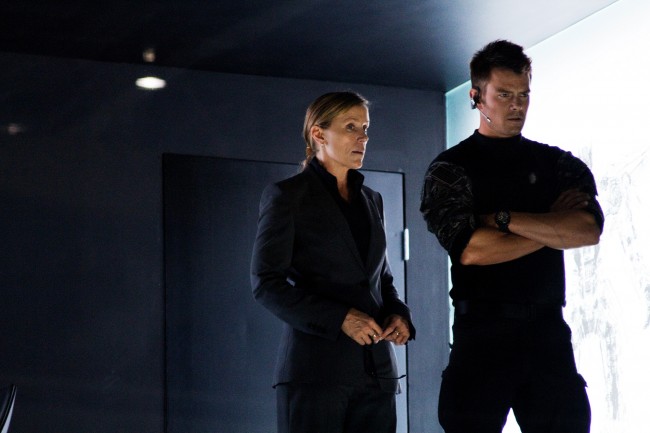 You know how you and your friends (if you’re lucky to have them) would sit around and talk about “well if I had things MY way,” but it would all sorta contradict each other (“No girls! They’re awful. But I’d have a ton that would think I’m hot and we’d totally have sex all the time!”)? That’s what the Decepticons are for! See, they hatched this plan that keeps stretching backwards that is REALLY a trap that needs the Autobots and the humans to trigger before they can take over the world. Except that, in the end, when all the twits are finally straightened, there is absolutely no need for such devious plotting. In fact, their entire scheme could have absolutely gone on without getting them involved remotely, and would have been carried out years ago, but where’s the fun in that, right?
You know how you and your friends (if you’re lucky to have them) would sit around and talk about “well if I had things MY way,” but it would all sorta contradict each other (“No girls! They’re awful. But I’d have a ton that would think I’m hot and we’d totally have sex all the time!”)? That’s what the Decepticons are for! See, they hatched this plan that keeps stretching backwards that is REALLY a trap that needs the Autobots and the humans to trigger before they can take over the world. Except that, in the end, when all the twits are finally straightened, there is absolutely no need for such devious plotting. In fact, their entire scheme could have absolutely gone on without getting them involved remotely, and would have been carried out years ago, but where’s the fun in that, right?
And poor Sam. What does a guy have to do? He totally saved the world, like, TWICE (beat Call of Duty: Modern Warfare 2, mowed the lawn), he got a freaking medal from the President (Principal’s Honor Roll) but he STILL can’t get what he wants (Call of Duty: Black Ops) and that’s so freaking unfair! And it’s totally out of his hands because of this terrible job economy (driver’s license still four years away, Mom won’t drive to the mall cause she’s busy). So he goes on all these interviews and bombs them cause they don’t get him (asking out girls, getting rejected) and there’s nothing that he’s doing wrong, obviously (asked the girls out via desperate emails). But then he finally gets a job but it’s totally not what he wants and, frankly, he deserves better (finally gets a girl, isn’t a model, mild depression over it). So he does it for a while but then all of a sudden his past comes back to haunt him and everyone in his vicinity (farted in class) and he has to challenge it head-on (by remaining in class as everyone turns, looks, giggles, and points). It’s tough, man.
Then you’ve got his parents. First you have the Dad (Kevin Dunn), who’s SUCH a dick, right? He’s all like “you need a job, where’s your job, can’t believe you’re three months out of an unnamed Ivy League college and don’t have a job, what a waste of money that was for me!” (Even though his girlfriend mentions he went on a scholarship from the US Government because of his heroics and the dad didn’t actually pay a dime, but isn’t that just like parents to take on unnecessary burden to complain about it?) And your mom (Julie White) is totally cool, talking about penis sizes and using the term “hotties” and the like. She’s totally out there, y’know, which is cool sometimes, but can be REALLY EMBARRASSING, right!?
 Then you say stuff that you don’t really mean. Like how the Transformer race is a total secret, even though they constantly fight in major-metropolitan areas and are name-checked by Bill O’Reilly on national television. Or when Sam’s boss (John Malkovich) is totally a powerful, bad ass eccentric until Jerry Wang (Ken Jeong) totally one-ups him and Bruce loses credibility forever for a simple throwaway gag. But that’s cool, cause the boss also relegated Sam to the mail room where one character says he’ll be there for two and a half years and then, within a day or two, Sam becomes practically his personal assistant. Or when the Decepticons say that they’ll use people for slave labor and proceed to do nothing but kill that potential work force en mass just cause it’s bad ass. People say stuff, y’know? Doesn’t mean anything. Whatever.
Then you say stuff that you don’t really mean. Like how the Transformer race is a total secret, even though they constantly fight in major-metropolitan areas and are name-checked by Bill O’Reilly on national television. Or when Sam’s boss (John Malkovich) is totally a powerful, bad ass eccentric until Jerry Wang (Ken Jeong) totally one-ups him and Bruce loses credibility forever for a simple throwaway gag. But that’s cool, cause the boss also relegated Sam to the mail room where one character says he’ll be there for two and a half years and then, within a day or two, Sam becomes practically his personal assistant. Or when the Decepticons say that they’ll use people for slave labor and proceed to do nothing but kill that potential work force en mass just cause it’s bad ass. People say stuff, y’know? Doesn’t mean anything. Whatever.
And sometimes, really, you couldn’t care less. Homework? Pfft. Take out the trash? Don’t my parents know I’m watching Jersey Shore!? Or like when the Decepticons are destroying Chicago for an entire twenty-four hour period, yet there are people who are still in their office buildings and apartments many stories in the air the next day. Or when they just happen to be on the ground running around like idiots in the middle of giant battles when they should have just, y’know, left the city all together. Or when the Decepticons can blow up any US drone sent in to the battleground’s vicinity but can’t be bothered to notice when their arch-nemeses, decked out in shades of bright red, bright yellow, and bright green, drive in a caravan into the city. Or when Army dudes are being dropped into the area in flying squirrel suits and get shot at and chased through the skyscrapers pull their parachutes and aren’t shot at even though they’re the same targets except now they’re incredibly slow-moving and it’s incredibly easy to predict where they’re going to be, it’s like, why bother? Too easy anyway, am I right?
Then there’s the comedy, which is based around people cursing or getting cut before they finish the word “clusterfuck.” Cause cursing is totally awesome! You’re totally not allowed to say that, bros. Like, ever. But when these robots, who are so bad ass, just walk around throwing “crap” and “shit” it’s totally awesome, cause they sound like my friends. Cursing fucking rules. And when they’re about to drop the F Bomb and the censors cut them off? That’s totally like big corporations, right? It’s just a word. Who cares? Fuck fuck fuckity fuck fuck. Doesn’t hurt anyone. And it’s totally awesome to say, too! People just need to chill out, y’know?
…And so on and so forth through the entirety of the film’s arduous 157-minute run time. It’s a movie that’s moody but never truly emotes (“How was school, honey?” “Alright”), lives in the moment rather than thinking long term (each character’s priorities drastically change based on what’s going on in that scene and that scene alone with no regards to an overall arc or plot), that would rather scream that talk things out (the entire Battle of Chicago). It isn’t just tailor made for teenagers, it is the embodiment of them. It speaks to them in a way that I have not been able to understand in years, which I’m thankful for. And, rather than notice how bad it is for everyone else to love it, I’d rather be happy that I don’t. Yes, it means something about me, but not all that much.
 Dark of the Moon is the filmic equivalent of Ke$ha’s “Tik Tok,” working in equal terms of accessibility and wish fulfillment. What girl doesn’t try on a lot of clothes before they go out? What girl doesn’t want a ton of boys blowing up her cell phone? What boy doesn’t understand what it’s like to be told that they aren’t experienced enough to do something? What boy doesn’t want to save the world on multiple occasions, drive an awesome-looking car that happens to be your best friend which is really a robot that happens to kick a ton of ass? What boy doesn’t want to be the hero of his own story?
Dark of the Moon is the filmic equivalent of Ke$ha’s “Tik Tok,” working in equal terms of accessibility and wish fulfillment. What girl doesn’t try on a lot of clothes before they go out? What girl doesn’t want a ton of boys blowing up her cell phone? What boy doesn’t understand what it’s like to be told that they aren’t experienced enough to do something? What boy doesn’t want to save the world on multiple occasions, drive an awesome-looking car that happens to be your best friend which is really a robot that happens to kick a ton of ass? What boy doesn’t want to be the hero of his own story?
If I was thirteen, I would probably love this movie, just like I loved Limp Bizkit and KoRn. And, when I got older and revisited it, I’d probably think to myself, “oh god, why did I ever like this?” just like what I do with Limp Bizkit and KoRn. This isn’t an epidemic that will swallow the film industry hole just like how mindless pop records didn’t ruin the entire baby boomer generation with their frivolous songs about girls and boys and love and how they don’t have any. A generation who, it should be noted, grew up to be these very film critics that are railing so vociferously against this film.
Then how could I explain the high number of college-aged kids and adults who will obviously love this film? Or critics like Drew McWeeney whose reviews otherwise hem nicely with my own taste and whose knowledge of classic, tasteful cinema far outweighs my own? Well, I still hate Ke$ha, but I’ll be damned if every now and then I inexplicably start singing, “I wake up in the morning feeling like P. Diddy” when I’m alone. Just cause something isn’t “good” doesn’t mean it’s not catchy.

